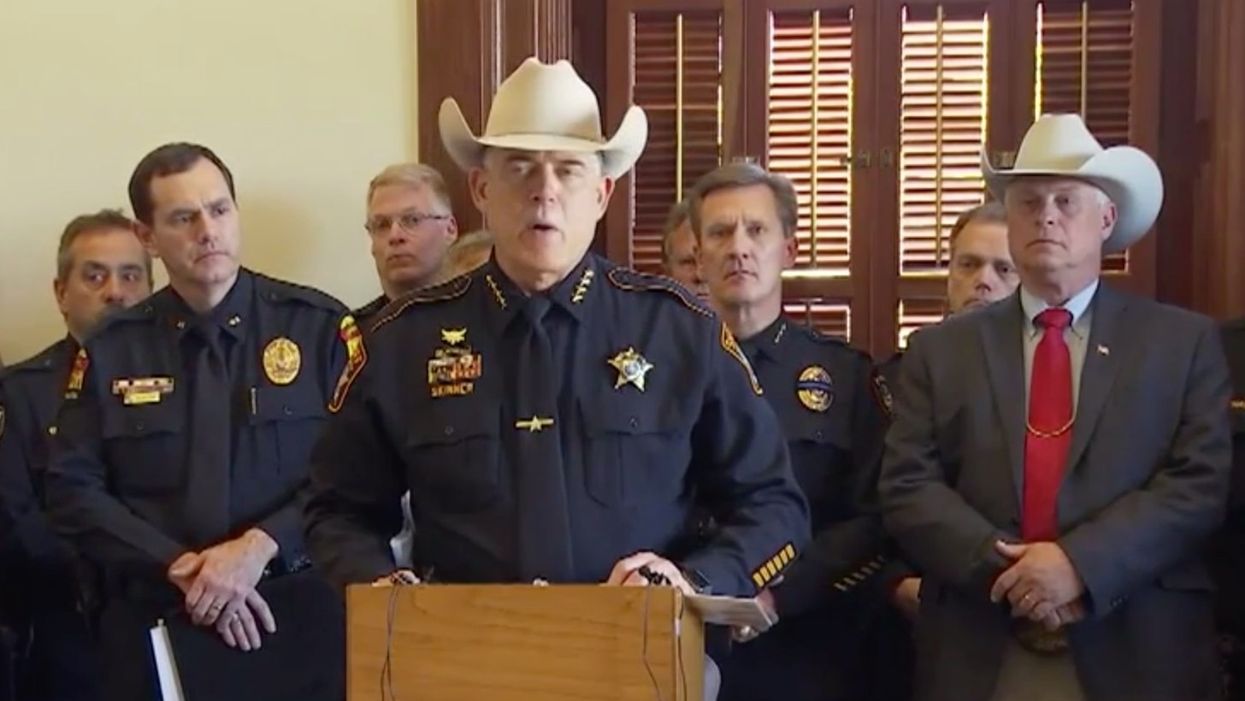
Image source: KTBC-TV video screenshot

'Texas sheriffs oppose the further legalization of marijuana'
Some Texas lawmakers have voted in favor of a bill that would decriminalize the possession of small amounts of marijuana. In response, a group of Texas law enforcement officers showed up at the state Capitol in Austin, Texas, to make clear their opposition to the measure, KTBC-TV reported.
"Texas sheriffs oppose the further legalization of marijuana in the state of Texas," Collin County Sheriff Jim Skinner said.
On Tuesday, the Texas House Committee on Criminal Jurisprudence passed House Bill 63 by a 5-2 vote. Now, the measure heads to the House floor for debate.
Currently, marijuana possession of any amount in the state of Texas is considered a Class B misdemeanor and is punishable by a fine of up to $2,000 and up to six months in jail.
Under the bill, anyone caught with an ounce or less of pot would face a fine of up to $250. A third offense would be a class C misdemeanor and punishable by a fine of $500.
Democratic state Rep. Joe Moody has attempted to push similar bills in previous sessions.
"This is the earliest the bill's ever been voted out," Moody said, according to KTBC. "it's the third session it has been voted out of committee with bipartisan support."
The more moderate arm of the Republican Party of Texas has made decriminalizing marijuana part of its official plank this session, according to the Texas Tribune.
Last year, Republican Gov. Greg Abbott voiced support for reducing the penalty for possession to a class C misdemeanor.
Moody also claimed the measure could generate nearly $3 million in annual revenue through court fines.
Authorities warned lawmakers that softening marijuana laws creates another set of problems with serious risks.
"Our research has found marijuana in legalized states can increase crime, negatively impact public health, place additional strain on social services, fail to eradicate criminal enterprises and that expenditures often outpace revenue collections," Grand Prairie Police Chief Steve Dye told lawmakers.
The group said it isn't opposed to discussions about limited medical use or possibly reducing the penalties for possession, KTBC reported.
But they pointed out that the arguments for medical allowances and penalty reductions are part of a strategy to desensitize the public which can lead to overall legalization.
It's likely that the issue won't be taken up in a floor debate until next month, according to KTBC.